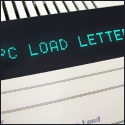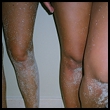|
Kai was taken posted:Added Electro to the OP. If Eurodance gets a genre, Electro should. I think this pretty much covers most of the "main" genres, or at least enough to trace back derivative roots. Small correction, what you've actually got listed there is electro house (which is related to electroclash), but despite the similar name is a very different sound from electro. Electro is a pretty early style that came about when those producers started combining Kraftwerk sounds with hip-hop and funk. Electro has a lot in common with Detroit techno, but sort of predates it. Lots of 808 beats, spacious echos, and mad amounts of pop-locking and robot-ing. Afrika Bambaataa's "Planet Rock" is one of the most famous electro tracks. h_double fucked around with this message at 03:24 on Apr 13, 2008 |
|
|
|

|
| # ? Apr 19, 2024 17:47 |
|
First Time Caller posted:Could someone throw me a bone on how to program those really awesome rumbling, overcompressed basses stereotypical of Electro House? Artists like D.I.M, and deadmau5 use them all the time. I really like that sound and it'd be awesome to have a decent preset to go off of when creating sounds similar to this. http://www.abletonguru.com/electro-house-bass-in-yo-face/ is a nice little tutorial that should get you in the right direction. He uses vinyl distortion and chorus plugins, but doesn't put a compressor in the patch since it's basically just a squarewave with a simple on/off volume envelope. h_double fucked around with this message at 03:22 on Apr 13, 2008 |
|
|
|
h_double posted:Small correction, what you've actually got listed there is electro house (which is related to electroclash), but despite the similar name is a very different sound from electro. As much as I agree with you about this, it's a lost cause. 
|
|
|
|
Electro house only exists now because producers of actual electro. And by producers I mean Anthony Rother. And the poo poo he does is NOT housey one bit.
|
|
|
|
breaks posted:As much as I agree with you about this, it's a lost cause. The description of Trance and House is a bit hosed up too. But yeah. 
|
|
|
|
WanderingKid posted:The description of Trance and House is a bit hosed up too. But yeah. Yeah, I just noticed that too. It might be helpful for the genre descriptions in the OP to include some more brief information about characteristics of different genres, like typical BPMs and instruments, and especially a little bit about the history and roots and influences of different genres. These are more useful and objective than identifiers like "groovier" or "euphoric". For example: Drum & Bass: first evolved as Jungle, out of the early 90s UK hardcore scene, which mixed sped up breakbeats with dancehall and hip-hop. Branched off into different sub-genres like jazz/ambient-influenced "intelligent" D&B (LTJ Bukem) and the more purely electronic/industrial darkstep/techstep (DJ Trace, Dieselboy). D&B styles all have in common a tempo usually between 160-180bpm, heavy basslines, and intricate syncopated rhythms. House: grew out of the gay club scenes of the late 1970s, blending disco with other pop and electronic sounds. Heavy 4-beat but often with elaborate rhythms, and usually more emphasis on actual (sampled) instruments and traditional song structures compared to most electronic music. Usually around 110-130 bpm, has spawned a million sub-genres ranging from soulful deep house (e.g. Frankie Knuckles, Derrick Morales) to the sometimes more ambiguous and overlapping electronic-sounding progressive house, tech house, etc. Or if the trance description maybe had something to say about Harthouse or Sven Vath or more modern offshoots like Goa/psytrance, and how trance is usually around 130-160 bpm with a heavy 4-beat. I realize that this thread shouldn't get sidetracked into a comprehensive history of electronic music, but I think it could be useful to provide some simple and succinct pointers for new DJs/producers to answer questions like "what is this I'm listening to and where can I learn up on it more?" h_double fucked around with this message at 06:58 on Apr 13, 2008 |
|
|
|
h_double posted:Or if the trance description maybe had something to say about Harthouse or Sven Vath or more modern offshoots like Goa/psytrance, and how trance is usually around 130-160 bpm with a heavy 4-beat. Describing any of them is really a lesson in futility as you will never encompass everything that gets created under the name. The boundaries aren't fixed either. What is called Trance now is so different from what was called Trance in 1996 that people have begun to refer to them by different names. As this is a music making thread I assume people getting into electronic music production would be making music that they are passionate about. I don't think you need a pick and mix guide on different styles of dance music that you ideally want to make. You could simply link to Ishkur's guide if you wanted a genre breakdown and it would be alot more comprehensive than what is in the OP but just as liable to fill the reader's head full of poo poo. In the end I don't think any guide is necessary because club music really isn't explained very well in words on an internet forum. If someone wants a song ID or something then all you need to do is post a soundclip here and someone on these forums will recognise it and the style of music it belongs to. The important thing I guess is that if you want an ID of anything, you need to post a soundclip. That is all.
|
|
|
|
h_double posted:Yeah, I just noticed that too. It might be helpful for the genre descriptions in the OP to include some more brief information about characteristics of different genres No, please. Don't  . .Ishkur is enough because it is a central point of reference and most importantly, has audio examples and no overly long opinion stories of which the Wikipedia genres are already filled with. The descriptions are tongue in cheek - I don't care, at least better than the vague quasi-intellectual meandering. An imperfect standard, but at least a standard. The smallest element of "genre" is a part of a song. You can't pin it down on a song, or an artist, or an album. Because it's impractical (and usually not necessary) you just take a song and pin it to a genre. This is both helpful (because it defines boundaries and provides aim) and lovely (because the genre becomes the law any new music is judged with). Laserjet 4P fucked around with this message at 19:59 on Apr 13, 2008 |
|
|
|
Yoozer posted:No, please. Don't Ishkur?
|
|
|
|
http://techno.org/electronic-music-guide/
|
|
|
|
God I can't believe I actually suggested linking to his guide...
|
|
|
|
Yes, Ishkur's guide is a bit of a joke. I find for getting people a quick start on different styles of music is to simply go to the "genres" page on Beatport and listen to the samples listed under each genre (it's the top three tracks at the time for each genre). Certainly it's not perfect but it will give you an idea of what is "hot" in house vs electro house vs trance and so on
|
|
|
|
The reason the genre descriptions are like they are is because genres are too sporadic to consider fitting into a tight description. Like was said, 2008 trace is a lot different from 1996 trance. Are we going to describe electro from 1980, or what most people are listening to now? Also, the descriptions are used to illustrate the point of how ridiculous it is when people try and push these tight labels over genres. Plus, nobody is ever going to be completely content with any description or clip, just like people will argue until they day they die of what one song encompasses the entire genre of "gangster rap". I think describing the genres like they are is now far better than trying to come up with some long-winded serious historical look at it that 98% of people don't care about, especially starting out. Remember, this is a guide for people new to the genre to get easy information on how to begin, not to shove as much history down their throats as possible. But, this is supposed to be what everyone wants, so if everybody would rather have a pasted Wiki paragraph for every genre, I'll change it. PRADA SLUT fucked around with this message at 03:28 on Apr 14, 2008 |
|
|
|
There's a lot of discussions about tools and the correct aesthetics to ascribe to specific genres, but I'd be much more interested in a thread about electronic/club/dj music that covered the actual composition process that people use. How do you go about choosing samples or tones? Do you start with a drum beat or a synth line? How do you get from the start of your song into a full blown piece? Because the tools are one thing, but the actual process is much more elusive IMO.
|
|
|
|
I hear lots of electronic artists make the climax of their song first. Then use interesting arrangements, one shots, and samples to work their way back. That way it climaxes like a real trance song or what not. Seems to work in my opinion. I usually use a combo of massive and fm7 to make a patch for a bass or lead, then run them together thru a send and record the output. Then I will either keep the part I made or drop it in sampletank or simpler and replay the part. I think mixing a few synthesis types makes some wild sounds. Usually takes a lot of eqing and filtering though. You can sidechain compress the bass with the kick or actually duck the volume in the automation settings then copy paste the automation across the song. Both work, and both sound different. Anyone who hasnt mapped the arpeggiator note type (1/32, 1/16 etc) to a knob while a lead riff is playing and tweaked it is missing out. Another cool trick is playing with the loop size and length on a vocal track to make instant cut ups in ableton. I believe there is a really cool ableton video with telefon tel aviv on youtube with cool cut up tips. Sorry I am rambling. Rkelly fucked around with this message at 14:20 on Apr 14, 2008 |
|
|
|
Kai was taken posted:But, this is supposed to be what everyone wants, so if everybody would rather have a pasted Wiki paragraph for every genre, I'll change it. Perhaps a consensus would be to simply have a note in the OP to look up the specific genres on Wikipedia, which usually does have good background info about house, techno, trance, etc. I do still think that if nothing else, a brief note about common BPM ranges for different genres could be useful information that's not likely to be disputed. Also I certainly don't want to "cram history down people's throats", but I would strongly offer as advice to new producers and DJs, LEARN WHERE THE MUSIC COMES FROM. Listening to what's hot on the charts now without also knowing about Giorgio Moroder and Kraftwerk and 80s new wave and 80s breakdance music (just to name a few major influences), will only take you so far -- it's like trying to be a rock guitarist and not listening to anything recorded before 1995. It's important as part of appreciating and respecting the culture, but it's also important because it will put new sounds in your ears; it will get you thinking in different directions and give you some nice surprises to pass onto your listeners. h_double fucked around with this message at 15:02 on Apr 14, 2008 |
|
|
|
RivensBitch posted:There's a lot of discussions about tools and the correct aesthetics to ascribe to specific genres, but I'd be much more interested in a thread about electronic/club/dj music that covered the actual composition process that people use. How do you go about choosing samples or tones? Do you start with a drum beat or a synth line? How do you get from the start of your song into a full blown piece? A lot of times I'll hear something (a synth patch or a bit of a song) and think "oh hell yeah I want to work that into a track". But when it comes to actually putting the track together, the kick and bassline just about always come first. It's like the foundation of the building (and are such an important part of dance music in particular) that it's really really hard to have s strong track unless the kick & bass fit together right from the beginning. As far as actually fleshing it out into a full track, there's some advice that has been posted on this forum a bunch of times, and that's to take a song (by somebody else) that you really like, and sit down with a piece of graph paper while listening to it. The rows of the graph paper are the different parts of the song (kick, snares/hats, bass, vocals, wee-ooo synth, whatever) and each column of the graph paper represents 4 or 8 bars of the timeline. Just go through and map when different parts come in and go out, and that'll give you at least a rough guide to think about how to structure the buildups and breakdowns in your own tracks.
|
|
|
|
RivensBitch posted:covered the actual composition process that people use. http://forum.clubcharts.nl/topic.php?id=48045/1/20 Yes, the text is in Dutch, but all links are for Google Video anyway. Mostly dance stuff, though.
|
|
|
|
RivensBitch posted:There's a lot of discussions about tools and the correct aesthetics to ascribe to specific genres, but I'd be much more interested in a thread about electronic/club/dj music that covered the actual composition process that people use. How do you go about choosing samples or tones? Do you start with a drum beat or a synth line? How do you get from the start of your song into a full blown piece? It doesn't matter what you start with. Generally I find it easiest to start with the instruments that will have the largest presence in the mix as you want them to be the most detailed and at the forefront at all times. Depending on what instrument that happens to be, the proportion of the rest your mix will mould and recess itself around them. For instance, I tend to find that if I start with a drum track and am adamant that I want my percs and bass drum to be at the fore all the time, I necessarily have to make space for them by recessing everything else and consequently my mix takes on a tribal sort of tone (because the drums are the clearest point of interest). Because the drums take up so much space in the mix, you necessarily start to add less extras and the mix becomes more sparse. It is difficult to describe how this works. I dont always start with the same instruments and find that if I start with a lead or a pad, my bassdrums tend to be less massive because I am keen to keep the lead/pad more of a focal point. The proportion changes all the time depending on what you want to keep at the front. Alot of people do seem to start with their drum track but then it is often the case in popular Trance in the past few years that you have these freaking massive bassdrums that are ever present in the mix and eat headroom like the cookie monster. I start with whatever I have that sounds good. Sometimes this is a bassdrum and I build a groove out of it and expand it from there. Sometimes I make a really nice lead sound and I get inspired to make something out of it. That is my starting point. Sometimes I build some swirling ambient wierdness on my Virus B and I decide I want to make an ambient tune out of it that later becomes the foundations for something more clubby. The point is that everything subsequent to that has to be worked around what you already have. Composition wise, electronic dance music is typically not very complex and where I used to trip up was to make it more complex than was appropriate or even necessary. I mostly write a type of music which I guess you could call Progressive Trance or Progressive House. The fundamental point here is to create a lulling, hypnotic groove and I achieve this with a monotone bassline often consisting of just a single repeated note. As it is the driving force of the track I do invest alot of time in making it sound detailed and getting the timbre to sound interesting since it will be the backbone of the track. The tempo stays the same but you create the impression of gaining speed by double/quadruple timing - i.e. increasing divisions of notes. The aim in is very specific. You start with a simple bassline and gradually and subtlely add single layers of notes that repeat at periodic and regular intervals and simple arps that build and build into a wall of ping pong delays at the end and you won't be able to distinguish between what notes are the top end of the bass and what notes are the the bottom end of the lead. So the idea is to literally spin a weave of sound that grows in intensity to a climactic point. That is just the basic concept and by no means something that everyone should strive to achieve. I tend to find working from a concept is easier and it helps me not to lose track of what it is that I intend to do and not get sidetracked on details that do not contribute to the overall effect. How do I go about choosing samples or tones? I build a sound that I like and which sounds interesting. This is a very methodical process using a synthesizer but the remarkable thing is that you can follow a very specific set of guidelines to get to a certain point - for example a very basic way to synthesize string timbres on a virtual analogue synthesizer is to set 2 or more oscillators to a harmonically rich waveform (i.e. sawtooth), tune them slightly apart, sum them all together and rectify it. However once you have the framework you can find that you can turn a very ordinary sound into something completely alien just by doing something like changing the envelope times or switching one of the oscillators to a different waveform, or tuning one of them an octave higher or lower. Since I always start with the instrument I want at the front, I always spend alot of time just sound designing. Building interesting sounds from scratch. I save them and come back to them later to see if I still like them or to see if I can improve them. The ones I hate, I delete. The ones I like I keep. In this way I have built up several banks of usuable sounds over the years that I can use as the starting point of a song. As I said, once you have the patches it is easy to morph them into something completely different but you do need a system and you do need to understand what every knob and slider does on your synth of choice. Since the music I write is progressive, it is built on overlapping loops and sequences and once you have enough raw materials and sound assets and a clear idea of what direction you want to go in then the next big thing to overcome is the mixdown. I rarely make it to the end of this stage since I often get lost in obsessing over details and proportion and meh. The more I go through this process though the more I begin to instinctively know what will and will not work together so I'm improving all the time. But this is a process that just feels intuitive to me. It isn't necessarily intuitive to anyone else and it may not even be the direction they want to go in. The way I do things like sound design is also very synaesthetic and you know how difficult that is to explain your synaesthesia. This is all very general but then I can only offer general responses to very broad questions. WanderingKid fucked around with this message at 21:19 on Apr 14, 2008 |
|
|
|
WanderingKid posted:I rarely make it to the end of this stage since I often get lost in obsessing over details and proportion and meh. I had this problem for many years, until I started forcing myself to a fixed workflow. Something like; Basic groove, basic structure, break, buildup, replace sounds, add fills, finalize arrangement, add SFX, add drum/FX transitions, rough mix, feedback, replace sounds again, mix, master, expect failure. Basically this helped me personally alot because it prevented me from straying from getting closer to finishing since I didnt get hung up on small details (that usually turn out to be irellevant and a bad idea to begin with anyway) Its so easy to lose focus and get lost because you want to add 16 choruses to your lead sound. Thats why I can never produce if im high. Another thing that helps immensly; Deadlines! If you HAVE to complete a project in a fixed period of time, you would be amazed at how focused and organized your production will become. And never ever give up.
|
|
|
|
Quincy Smallvoice posted:I had this problem for many years, until I started forcing myself to a fixed workflow. Yeah, seconding this. Knowing your goal right from the start and filling in the blanks as you go (i.e. what sounds to use, how to mix down, etc.) is probably one of the most efficient ways to produce. It takes away the focus from "what more can I add to this climax-loop" and puts it where it belongs; the finished track.
|
|
|
|
I got bored tonight and pooped out a rather generic, repetitious tune on my Korg Emx-1 in an hour or two's time. I may flesh it out tomorrow since I think it has some potential. Either way, it's nice to see that after almost year of dicking around with music production in my free time I can do what might have once taken me two days in an hour or two. Plus now I can do it on the fly. Here's a "live" recording (as live as jamming on a groovebox can be, anyways): I really should be doing homework. nah thanks fucked around with this message at 05:50 on Apr 15, 2008 |
|
|
|
squidgee posted:I got bored tonight and pooped out a rather generic, repetitious tune on my Korg Emx-1 in an hour or two's time. I may flesh it out tomorrow since I think it has some potential. Either way, it's nice to see that after almost year of dicking around with music production in my free time I can do what might have once taken me two days in an hour or two. Plus now I can do it on the fly. Here's a "live" recording (as live as jamming on a groovebox can be, anyways): It sounds like one of the notes in your progression is out of key, it just sounds wrong and I'm not sure why.
|
|
|
|
IanTheM posted:It sounds like one of the notes in your progression is out of key, it just sounds wrong and I'm not sure why. It shouldn't be, since I'm using an arpeggiator. I'll have to go back and check that since I'd be annoyed if it is, but you may be reacting to the fact that I inverted the chord before arpeggiating it. I'll have to go back and look at it.
|
|
|
|
So I'm interested in making some music, but I'm at a loss as to where I should begin. I'm primarily a bass player, but I'm also going to be getting a guitar to fool around with. I'd like to mess around with some sort of mix of electronic music along with guitar and bass. I guess you could say something like NIN, but I'm not wanting to be some kind of NIN knockoff either. Anyway... where do I start? Currently I have a decent PC: 2ghz dual-core AMD system, 1.5 GB ram, so-so 5.1 Turtle Beach sound card and a poo poo ton of USB ports. I've got my bass and a guitar on the way. I've also got a Line 6 Tone Port GX for recording the guitar and bass (and maybe some vocals later on). My budget would probably be somewhere in the ballpark of only $200 or so. I'm really interested in learning techniques for recording and mixing while getting to create my own music. This is all just for fun, nothing serious, so I'm not looking to run out and buy a ton of pro-level gear for screwing around in my basement. I have the music ability and the creativity, I'm just at a loss of where to start with all this DAW software and synths and what the gently caress is an envelope oh god I'm not good with electronic music. This thread has been immensely helpful so far. I've been able to screw around with FLStudio 8's demo and get some simple beats going, but from there I'm lost. I really like FLStudio's interface, so I'm considering sticking with it. The Tone Port came with Ableton Live Lite, but I've yet to give it a try. Should I? Which would be "better" for what I'm trying to do? Is Reaper worth looking into in my situation? Halp.
|
|
|
|
To the guy above me. Use ableton. Run your instruments through it. Then buy a fcb-1010 foot controller. Now your live looping bass and guitar with your feet controlling everything. 100 bones left. Get on craigslist and get a used axiom, keystation, kontrol 49 or something. Cheap usb midi controller with knobs, faders, pads. Don't just load your program and goof. Make some goals write them down, then complete them one at a time.
|
|
|
|
My workflow is so convoluted that I haven't finished a track in three years. I get distracted with my pretty hardware FX rack and end up doodling around with the 4 tap delay on my rack, and forget to write the track. By the time I've revisited it, I'm no longer hip to the lukewarm 4-bar loop I laid down. I'm going to try a more structured approach and also turning off my FX rack until I am done with the track composition.
|
|
|
|
Rkelly posted:To the guy above me. Use ableton. Run your instruments through it. Then buy a fcb-1010 foot controller. Now your live looping bass and guitar with your feet controlling everything. 100 bones left. Get on craigslist and get a used axiom, keystation, kontrol 49 or something. Cheap usb midi controller with knobs, faders, pads. This sounds like good advice. But, with all this DAW software, MIDI controlling, beat making, sound sample stuff I'm a total noob. Is Ableton really easy enough to use to just jump in and "make it work?" I'm comfortable with computers and software but so far these DAW programs seem pretty unintuitive to me. Is Ableton Live Lite going to be able to do what is described above? How does Lite compare with the full version? I'm not able to shell out $500 for software right now, so something less expensive is much more appealing.
|
|
|
|
Ableton comes with some really good tutorials to get you started, make sure you do them. If you have the lite version, you might be able to get a cheaper copy by doing an upgrade. From memory the lite version only lets you have 4 audio tracks and 4 midi tracks at once (or something like that). If you're only recording a couple of instruments it should do you for now, at least to the point where you can work out if its worth dropping cash on. I'm not really familiar with turtle beach cards, I think they had a really good rep about 10 years ago. You might want to look into getting a better one, presonus firebox or edirol fa-66 are good, and the m-audio audiophile is a good basic card. You should try and make do with what you have for now, as you do a couple of tracks you'll have a better feel for how it all works and what you need/want. It is quite a steep learning curve, but there's heaps of poo poo on the net and here as well to help you out.
|
|
|
|
Don't go with Lite, it's way too limited. Make friends with someone who works at Guitar Center and get them to buy you a copy, there's actually a decent amount of margin in the $500 price tag 
|
|
|
|
Or if you have a copy of live lite, or can buy one off ebay or craigslist for 15 bucks or something, you can get it for $350 instead... I've gone and reread the original post and I see that you do, indeed, have a copy of live lite... Just install it and see how you like it first of all, then whenever you run into its limitations (which is not hard) you can decide if you want to buy the full version.
|
|
|
|
I got Live Lite 4 with my MIDI controller, got a free Lite 6 upgrade (Ableton had some special going on), then just upgraded to full for not very much after that.
|
|
|
|
Kai was taken posted:I got Live Lite 4 with my MIDI controller, got a free Lite 6 upgrade (Ableton had some special going on), then just upgraded to full for not very much after that. They bundle Ableton LE with tonnes of keyboards and MIDI controllers these days, it's probably a cheaper route to go in the end if you're serious.
|
|
|
|
If you're a student you can get sweet academic discounts on Live. I got the Ableton Suite for $500
|
|
|
|
I have 0 talent and I'm horribly uncreative. Whats the best way to start just to learn the programs and poo poo? I was thinking of remixing stuff or something, what would be the best program for loving with somebody elses music and trying to pass it off as my own?
|
|
|
|
Quincy Smallvoice posted:Another thing that helps immensly; Deadlines! This is completely true, I'm terrible at finishing tracks, but I had a deadline for one and sat down and finished the whole thing in a couple of days with no problems.
|
|
|
|
Ben and Stew posted:If you're a student you can get sweet academic discounts on Live. I got the Ableton Suite for $500 Also, buying LE and upgrading it with the academic discount will cost you even less.
|
|
|
|
Pretty Little Rainbow posted:I have 0 talent and I'm horribly uncreative. Whats the best way to start just to learn the programs and poo poo? I was thinking of remixing stuff or something, what would be the best program for loving with somebody elses music and trying to pass it off as my own?
|
|
|
|
ManoliIsFat posted:I think you shouldn't make electronic music. It's not even elitism, it's your approach. If even FL is complicated, just get yourself some MP3 DJ application and a Korg Kaosspad or something. Then, if you still want to make something, hook up with someone who dislikes the DJ part and likes to make music. Laserjet 4P fucked around with this message at 21:20 on Apr 18, 2008 |
|
|
|

|
| # ? Apr 19, 2024 17:47 |
|
Pretty Little Rainbow posted:I have 0 talent and I'm horribly uncreative. Whats the best way to start just to learn the programs and poo poo? I was thinking of remixing stuff or something, what would be the best program for loving with somebody elses music and trying to pass it off as my own? even though all your friends are totally into soulwax remixes and justice and remixing seems like a great way to get some rear end this too shall pass and you'll be left alone, sobbing and holding a battered midi controller, stripped of all your pride and wearing nothing but your 300 dollar dior jeans
|
|
|


























